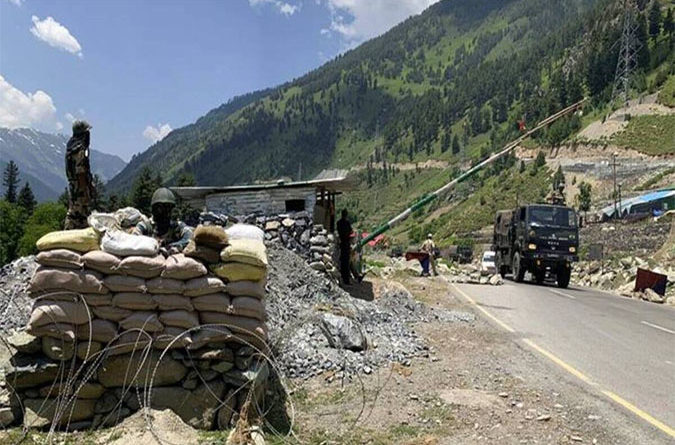India Returns Captured PLA Soldier To China
Jan 11, 2021
The Chinese soldier was captured at the southern bank of Pangong lake in the early hours of Friday after he transgressed across the Indian side of the Line of Actual Control (LAC). “The PLA soldier, who was apprehended on January 8, was handed back to China at Chushul-Moldo at 10.10 am on Monday,” a source said.
NEW DELHI: The Indian Army on Monday handed back to China a soldier of the Chinese People’s Liberation Army (PLA), three days after apprehending him at the southern bank of Pangong Tso in eastern Ladakh, official sources said.
The soldier was returned to China at the Chushul-Moldo border point in eastern Ladakh at 10.10 am, they added.
The Chinese soldier was captured at the southern bank of Pangong lake in the early hours of Friday after he transgressed across the Indian side of the Line of Actual Control (LAC).
“The PLA soldier, who was apprehended on January 8, was handed back to China at Chushul-Moldo at 10.10 am on Monday,” a source said.
Indian and Chinese troops are locked in a tense border standoff in eastern Ladakh for over eight months. The faceoff began in May last year, following a clash between the two sides in the Pangong lake area.
“The PLA soldier had transgressed across the LAC and was taken into custody by Indian troops deployed in this area. Troops from either side are deployed along the LAC since friction erupted last year due to unprecedented mobilisation and forward concentration by Chinese troops,” the Army said in a statement on Saturday. his immediate return on Saturday.
It was the second such incident of India capturing and subsequently returning a Chinese soldier in the last three months. Indian troops had captured Corporal Wang Ya Long of the PLA on October 19 last year after he “strayed” across the LAC in Ladakh’s Demchok sector. The corporal was handed back to China at the Chushul-Moldo border point following the laid-down protocols.
The areas around the Pangong lake along the LAC have remained tense in the last few months.
Around four months ago, Indian troops occupied a number of strategic heights in the Mukhpari, Rechin La and Magar hill areas around the southern bank of the Pangong lake, after the Chinese military attempted to intimidate them in the area on the intervening night of August 29 and 30 last year.
Chief of Army Staff Gen. MM Naravane visited various high-altitude forward areas in eastern Ladakh last month, including certain positions on the south bank of the Pangong lake, and reviewed India’s overall military preparedness.
Nearly 50,000 troops of the Indian Army are currently deployed in a high state of combat readiness at various mountainous locations in eastern Ladakh in sub-zero temperatures as multiple rounds of talks between the two sides have not yielded a concrete outcome to resolve the standoff.
China has also deployed an equal number of troops, according to officials.
The two countries held another round of diplomatic talks last month under the framework of the Working Mechanism for Consultation and Coordination (WMCC) on India-China border affairs.
The eighth and last round of military talks between the two sides took place on November 6 last year, during which both sides had broadly discussed disengagement of troops from specific friction points.
India has all along been maintaining that the onus is on China to carry forward the process of disengagement and de-escalation at the friction points in the mountainous region.
Following the sixth round of military talks, the two sides had announced a slew of decisions, including not to send more troops to the frontline, refraining from unilaterally changing the situation on the ground and avoiding taking any action that may further complicate matters.
This round of talks was held with a specific agenda of exploring ways to implement a five-point agreement reached between External Affairs Minister S Jaishankar and his Chinese counterpart Wang Yi at a meeting in Moscow on September 10 on the sidelines of a Shanghai Cooperation Organisation (SCO) conclave.
The pact included measures like quick disengagement of troops, avoiding action that could escalate tensions, adherence to all agreements and protocols on border management and steps to restore peace along the LAC.
Courtesy: ET

